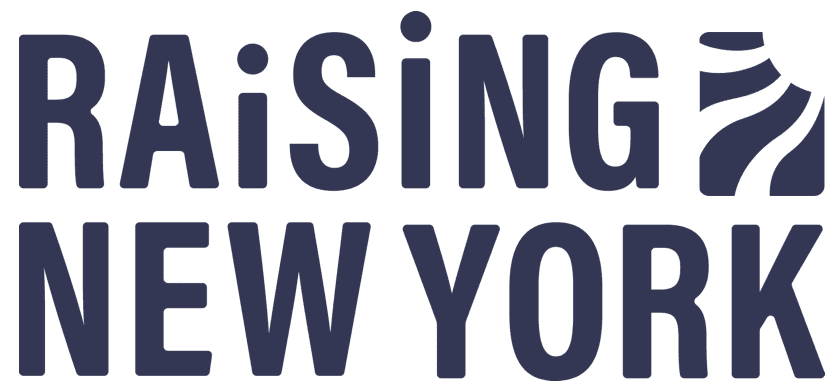Presented before the New York State Department of Labor
Re: Hearing, Impact of the COVID-19 Pandemic on Women in the Workforce
January 31, 2023
Good morning, Commissioner Reardon and esteemed members of this panel. I am Lara Kyriakou, Associate Director of Early Childhood Policy and Advocacy at The Education Trust—New York. Thank you for the opportunity to testify today. The Education Trust–New York is a statewide non-profit organization dedicated to educational equity. We work to attain educational justice through research, policy, and advocacy that results in all students – especially those who are from low-income backgrounds or students of color – achieving at high levels from early childhood through college completion.
Ed Trust–NY coordinates the Raising NY coalition, which is a diverse statewide coalition of parent, early childhood, education, business, and health organizations dedicated to supporting the learning potential of all children, with a focus on improving long-term outcomes for infants and toddlers who are low-income, children of color, and other under-served groups.
This is a critical time for New York, as our state continues to rebuild its economy amid an ongoing and persistent pandemic while also bracing for a looming recession.
Now more than ever, it is imperative that state leaders prioritize support for families and communities who have been historically underserved. As members of this panel know, the impact of the pandemic continues to be felt particularly hard by women in the workforce, especially for women of color. Gender-based pay inequities that existed before the pandemic have persisted; on average, for every dollar paid to a White, non-Latinx man, Latina women earn an average of 54 cents, Black women are paid an average of 64 cents, Native American women earn 51 cents, and White women are paid 73 cents.
Parents, and particularly mothers, in the workforce also face the additional obstacle of accessing child care in order to work. The Education Trust—NY, in partnership the Raising NY coalition and Global Strategy Group, conducted a statewide poll in the fall of 2022 and found that families across all racial groups said that issues with child care have affected their ability to attend work, school, or other commitments. A significant proportion of respondents, 41%, reported that issues with child care affected their ability to attend work, school, or other commitments at least two or more times in the past 30 days. And these figures were even higher for Black and Latinx respondents. Our poll also found that 2 in 5 families from low-income backgrounds are unable to afford child care.
When coupled with the fact that women of color and those in low-income households are more likely to live in child care deserts, areas where 3 or more children under 5 are waiting for 1 available child care slot, it becomes clear that child care affordability and accessibility are significant barriers to financial equity for all women in the workforce.
Recent efforts at the community, state, and federal level have examined the fiscal issues related to expanding child care access, and our state has taken some important steps to address them However, policies that support our youngest New Yorkers and their families remain disconnected and siloed, focused too narrowly on only one aspect of the system, or dependent on investments that are insufficient to meet the true needs of children and families and leave thousands of working families without the child care they need.
In this year’s State of the State, Governor Hochul proposed several policies that would build on last year’s important financial investments in the child care system, including increases in eligibility for child care assistance, simplifications to the child care assistance application process, new short-term supports for the child care workforce, and a proposed pilot partnership with businesses to expand workers’ access to high-quality, affordable child care.
We respectfully offer the following additional recommendations that will help New York move toward a comprehensive, high-quality child care system for all families:
- Increase parent accessibility to child care programs that fit their needs: Parents who work or attend school in the evenings, overnight, and during the weekends face considerable challenges finding reliable child care. A recent Raising NY poll found that Black parents were more likely to need non-traditional hours of care, and were more likely to report having to travel further from their home to locate such care.3 Child care programs offering non-traditional hours of care are a critical tool for supporting the economic and educational goals of families, especially families who face inequitable barriers to success.
- Address the shortage of infant and toddler slots: Care for infants and toddlers is the most expensive and staff-intensive, and therefore, difficult for child care programs to provide an adequate number of slots to meet demand. We must meet the demand for high-quality child care for infants and toddlers as a critical conduit to supporting women and parents in the workforce. Additionally, research tells us that-quality early learning environments are shown to support healthy growth and development in the formative early years of a child’s life and nurture the foundation of a child’s learning potential.
- Stabilize the sector with sustainable and competitive salaries for the childcare workforce. The pandemic has further highlighted how critical child care is for the economic recovery and growth of our state. Yet without long-term, consistent financial investments, there continues to be high staff turnover and programs closures; leaving working parents to scramble for care and impacting their ability to fully participate in the workforce. We must make long-term, sustainable investments in the child care workforce that will provide a livable wage.
The Education Trust–New York is committed to the success of all families. We are grateful for the opportunity to submit testimony and discuss strategies to create a comprehensive early childhood system that equitably supports all families, particularly the most vulnerable and under-served. Please feel free to contact me at [email protected] with any questions regarding this testimony. Thank you.

